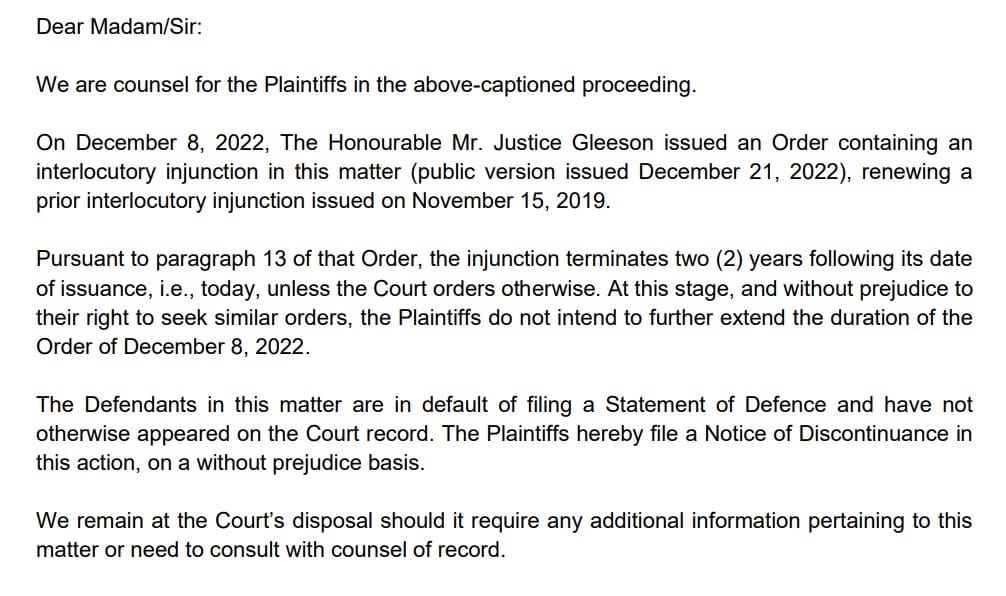 In 2018, Canada’s Federal Court approved the country’s first pirate site-blocking order.
In 2018, Canada’s Federal Court approved the country’s first pirate site-blocking order.
Following a complaint from major media companies Rogers, Bell and TVA, the Court ordered several major ISPs to block access to the domains and IP-addresses of pirate IPTV service GoldTV.
Site Blocking Appeals
There was little opposition from Internet providers, except for TekSavvy, which quickly announced an appeal. According to the ISP, the blocking injunction threatened the open Internet, just to advance the interests of a few powerful media conglomerates.
Canada’s Federal Court of Appeal disagreed and in 2021 it concluded that the blocking order can stay in place. According to the Court, site-blocking injunctions are an available option under the Copyright Act and they don’t violate freedom of speech or net neutrality.
Hoping to turn the tide, TekSavvy petitioned the Supreme Court to review the impact of site blocking on the open internet. However, Canada’s highest court declined to hear the case, effectively establishing Canada’s judicial site blocking route.
Blockade Evolves and Expands
The initial GoldTV blocking order was valid for two years. After that, rightsholders had to go back to court to request an extension. That happened indeed, and as time went on the blocking targets have evolved quite a bit.
After two years, none of the original domains were included in the blocking order. This is no surprise, as the original target domains were discontinued and replaced by new ones.
In 2022, the Federal Court approved the latest update, which included the domains destv.me, 905iptv.com, firtio.club, jiocdn.cc, new4k.co and zkat.me, as well as dozens of related subdomains. Most of these domains are still online today, linking to IPTV stalker portals.
Rightsholders Let Blocking Order Expire
While the blocking measures were still effective earlier this month, rightsholders Bell, Rogers, and TVA have decided not to request any further extensions. This effectively means that the blocking measures expired last weekend.
In a letter to the court, the plaintiffs state that they do not intend to further extend the duration of blocking the order. In addition, they have decided to discontinue the underlying lawsuit against the ‘unknown’ GoldTV defendants.

The media companies provide no further details on the decision, but it’s possible that the costs of keeping the blocking order intact weigh stronger than the perceived benefit. Unlike in some other countries, the rightsholders must compensate ISPs for the costs incurred.
While the GoldTV blocking measures are now discontinued, most of the targeted domains still appear to be up and running. These specific IPTV portals are not particularly popular today, but they were certainly not eradicated.
New Blocking Targets Take Priority
Rightsholders haven’t been sitting still, of course. The GoldTV case was the first test case; broader and more dynamic blocking efforts have followed since. These affect live streams of popular sporting events.
This summer, rightsholders including Bell, Fubo TV, Rogers, and The Sports Network obtained a blocking order that covers multiple sports. The organizations sought to secure a blocking order for new NBA, NHL and Premier League games, identifying three “John Doe” defendants.
Meanwhile, there is an ongoing proceeding in Canada against popular streaming site Soap2Day. The site officially shut down last year after a complaint was filed, but rightsholders could still try to obtain a blocking order to target its ‘copycats’.
From: TF, for the latest news on copyright battles, piracy and more.
Powered by WPeMatico
